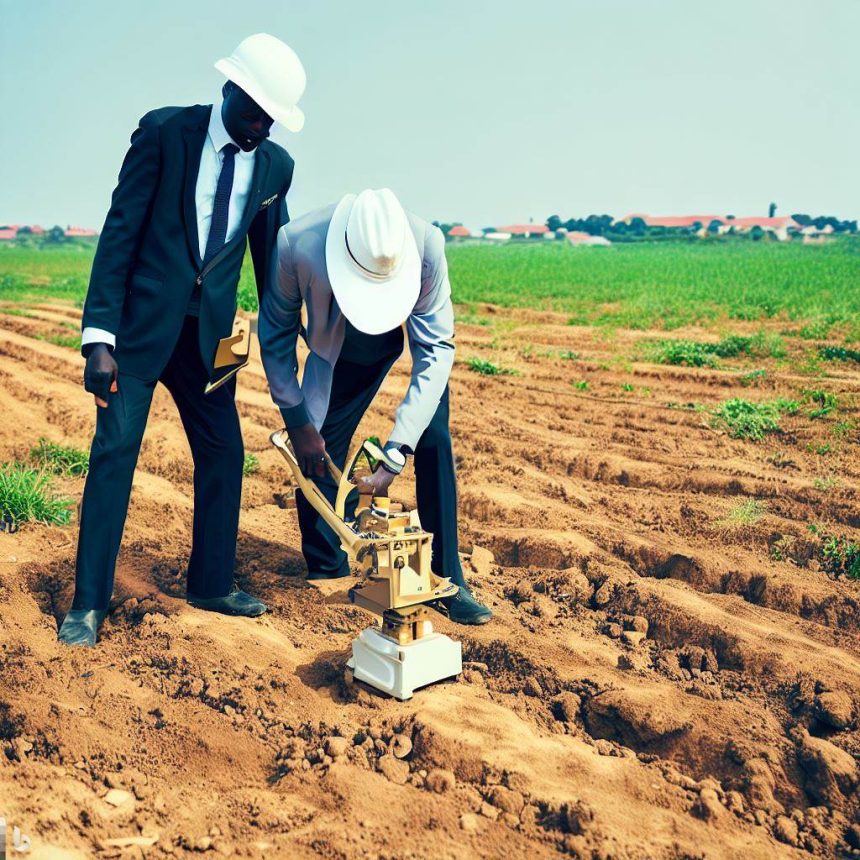If you’re looking to buy, sell, or develop land in Ghana, conducting a land title search is vital to avoid potential disputes, legal complications, or fraud.
A land title search helps you verify the legal ownership of the land and check for any encumbrances that could affect its transfer or usage.
Given that land ownership in Ghana can be complex due to an incomplete land registry system, overlapping claims, and fraudulent practices, a thorough title search is crucial to protect your interests.

Understanding Land Titles in Ghana
Land titles in Ghana are legal documents that confirm ownership, size, location, and boundaries of the land. There are three main types of titles:
READ ALSO: Report Reveals Less Than 10% of Land in Nigeria Is Titled
- Freehold: Grants full ownership rights.
- Leasehold: Time-limited ownership, subject to rent and conditions.
- Customary Title: Based on traditional systems, often requiring conversion to statutory titles for legal recognition.
The Lands Commission is responsible for registering land titles. However, the registry system is not fully computerized, which makes title searches more challenging.
Steps to Conducting a Land Title Search in Ghana
Conducting a land title search involves the following steps:
1. Online Search
The Lands Commission provides an online portal where you can search for registered titles by entering the owner’s name, land location, or registration number. Keep in mind that this database may not contain all records due to the system’s limitations.
2. Physical Search
You can visit the regional or district Lands Commission office where the land is located and request a search of the land registry. Provide the landowner’s name, the land’s location, and other details. The Lands Commission will provide a report detailing the title’s status, including any encumbrances and past transactions.
READ ALSO:Dangote refinery land: Group, Ibeju-Lekki residents sue Lagos govt over $100m compensation
3. Title Verification
Hiring a lawyer or a title verification company can help ensure the authenticity of the title. This process may involve reviewing documents, speaking with the landowner and stakeholders, and inspecting the land. A title verification report will provide a comprehensive review of the land’s legal standing, potential risks, and necessary next steps.
Key Documents Required for a Land Title Search
- Proof of ownership (e.g., deed of conveyance, lease agreement, or customary land document)
- Identification of the landowner (e.g., passport or driver’s license)
- Proof of payment for land taxes and fees
- Survey plans, building permits, and relevant court rulings if applicable
Challenges and Tips for Conducting a Land Title Search
Conducting a land title search in Ghana can be challenging due to several issues:
1. Incomplete Land Registry
Since the land registry isn’t fully computerized, it can be difficult to search titles and verify their authenticity. To address this, use multiple sources (online and physical searches) and consider professional assistance.
2. Overlapping Claims
Land disputes are common, with multiple parties sometimes claiming ownership. It’s essential to examine the land’s history thoroughly and consult a lawyer to interpret any potential red flags.
3. Fraudulent Practices
Fraud is a significant issue, with some people attempting to sell land they don’t legally own. Always verify title documents, physically inspect the land, and be cautious with deals that seem too good to be true.
4. Inadequate Documentation
Some land transactions are based on customary practices and may lack formal documentation. In such cases, consulting a land expert familiar with Ghana’s customary land tenure can help you navigate these challenges.



